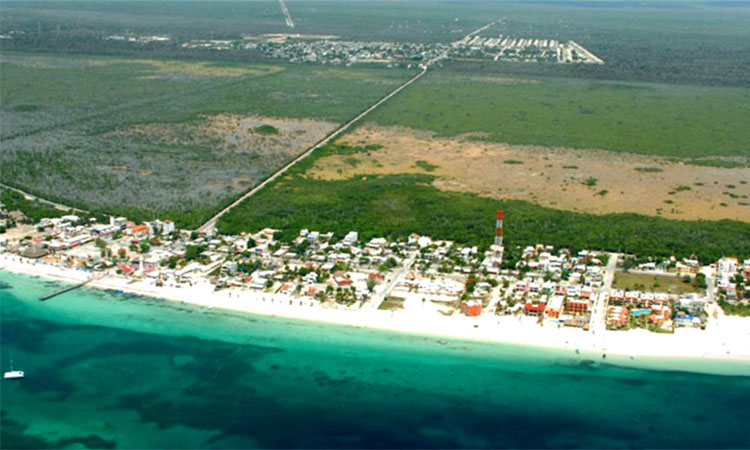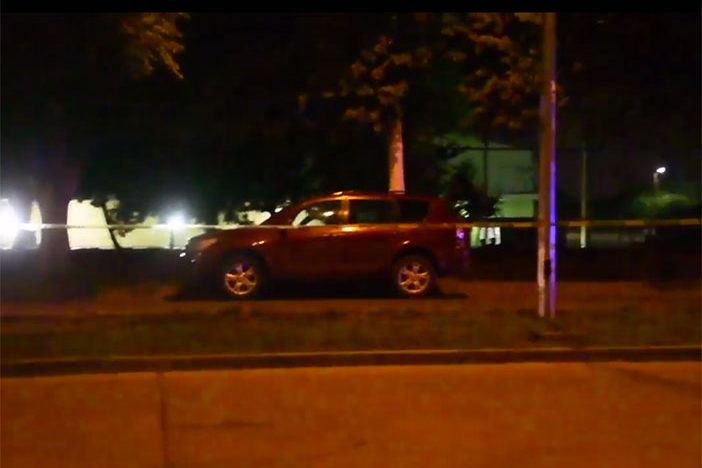Lapalabradelcaribe.com reports on a dispute over land in Puerto Morelos and Tulum like has never been seen before, after uncovering the entanglement of complicity, execution attempts and even simulation of land purchases in the northern area of Quintana Roo.
CANCUN — Revelations have come to light through the statement of an ex-agent of the US Department of Homeland Security hired by Spanish businessmen to investigate the Mexican casino owner, Javier Rodríguez Borgio, whom they later allegedly tried to kill. The revelations exhibited a plot of fraud, corruption and violence around 16 properties of the Riviera Maya.
According to investigations by the Attorney General’s Office and the Queretaro Prosecutor’s Office, the Spanish company Azco Services Provider tried to simulate a duplicate sale of the land located in Puerto Morelos, for which it had already received a payment of $20 million US dollars.
Making the first purchase of the land was the Mexican businessman Javier Rodríguez Borgio, through his Real Estate Company on August 18, 2015.
They initially agreed on a price of 25 million euros, but on November 26 of the same year a modifying agreement set it at $20 million dollars. The assets were finalized in full on December 31st. Azco is owned by Guillermo José Martínez Cárdenas, a Spanish businessman who runs several shipping companies.
Azco tried to invalidate this purchase in two ways. The first one was a lawsuit filed on January 22, 2016 before the 50th Civil Court in Mexico City, where it claimed the nullity of the operation, despite the charge.
The second one, the following 27 of April, was through the simulation of another process of buy-sell to Grupo Constructor de La Ribera.
Virgilio Rincón Salas and Joaquín Ramos Ramos, members of one of the most important law firms in Guadalajara, operated both movements. In the civil suit, Rincón represented Azco, while in the fraudulent purchase and sale turned out to be the owner of the buying company: Grupo Constructor de La Ribera.
The investigation reveals that the company of Rincón simulated to pay for the real estate $8,847,652 US dollars through a bank check. The tracking of the Attorneys General Office showed that Rincon had constituted its real estate company only a few days before, on March 11, 2016, and that four days later opened the mentioned bank account. The National Banking and Securities Commission informed the Attorneys General Office that from March 15 to July 31, 2016, the account with which Grupo Constructor de La Ribera settled the real estate never existed before that date. As a result the check used to pay had no funds.
Juan Felipe Martínez, an ex-agent with a private investigation firm in Miami that revealed the plot, said that the Spanish men tried first to change the name of the owners of the land, for which they paid a bribe to state officials, including former governor Roberto Borge and director of the Public Registry of Property of Quintana Roo, Carlos Lima Carvajal.
According to Martinez, who said he was hired by the Spaniard Andres Felipe Valea Vera, Azco’s legal representative, he contacted a Borge acquaintance in Miami and managed to speak with the former governor, who arranged the meeting between the Spanish men and Lima.
The agent said that the bribe amounted to $800,000 dollars because Valea asked for his help to enter that money from Europe to the United States, without declaring it to the authorities. He says he refused.
In the first week of April, Azco’s owner, Guillermo Martínez Cárdenas, as well as Valea, accorded to meet with attorneys Virgilio Rincon, Joaquín Ramos Ramos and Oscar Michel Márquez. The appointment was in the office of Rincon in Paseo de la Reforma 243, at the foot of the Angel of Independence.
The purpose was that the ex-agent sign the documents of a company that they were to constitute his name in Virginia. They wanted that company and Grupo Constructor de La Ribera, in the name of Rincón, to simulate the purchase of the land to register as owners in the State Public Registry, as they said they had pre-agreed with Carlos Lima, according to the testimony of the ex-agent.
On June 27, the Public Registry of Property and Commerce of Quintana Roo rejected the inscription of the deeds of the company of Rincon. Rodríguez Borgio’s plans had been written down beforehand.
The plan to assassinate the Mexican businessman was formulated before the attempt to recover the land again was frustrated, he said.
In the first moments of August 3, Javier Rodríguez Borgio Acosta, son of the Mexican businessman, was leaving a movie show, along with his girlfriend, in the commercial plaza Antea de Querétaro, with six escorts distributed in a black armored SUV Mercedes G-500, in which was the young man, in the green Jeep Liberty of his girlfriend, and in a white Dodge Charger that would follow them in the distance.
The shots came from a Jeep Nitro and a red-wine color Toyota RAV4, with plates from Jalisco. The escorts of the son of Rodriguez Borgio responded to the gunfire.
Soon after, at 2:12 am, the RAV4 was found by highway policemen in Coahuila Street, at the Obrera colony of Querétaro. In its interior was abandoned the lifeless body of Cabrera Garcia. On the same day, the Police de Querétaro arrested Edgardo Andrés Meza García and Victor Alfonso Islas Mejía, brother-in-law of the dead man.
On August 31, Valverde was captured in the city of San Luis Potosí along with the alleged hitmen Héctor Antonio Muñoz Zamora “El Bombero” and Gerardo López Bello.
All of them turned out to be from Jalisco, some with a history of having worked in a private security company in Guadalajara or in the Police of Tlaquepaque.
Looking for the application of the criterion of opportunity, to avoid penal sanction, the past January 11 Valverde appeared before the Prosecutor’s Office of Querétaro.
He alleged that lawyers Virgilio Andrade Salas and Joaquín Ramos Ramos paid 100 thousand pesos to execute Rodríguez Borgio.
It even counted that in late June or early July participated in a meeting of the alleged hit men with the litigants, in a vacant lot close to an area of commercial premises in Tlaquepaque. On January 12, a Court of Control of Querétaro ordered three new arrests.
Source: www.lapalabradelcaribe.com



